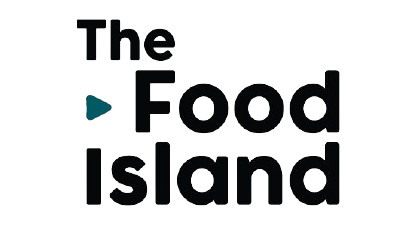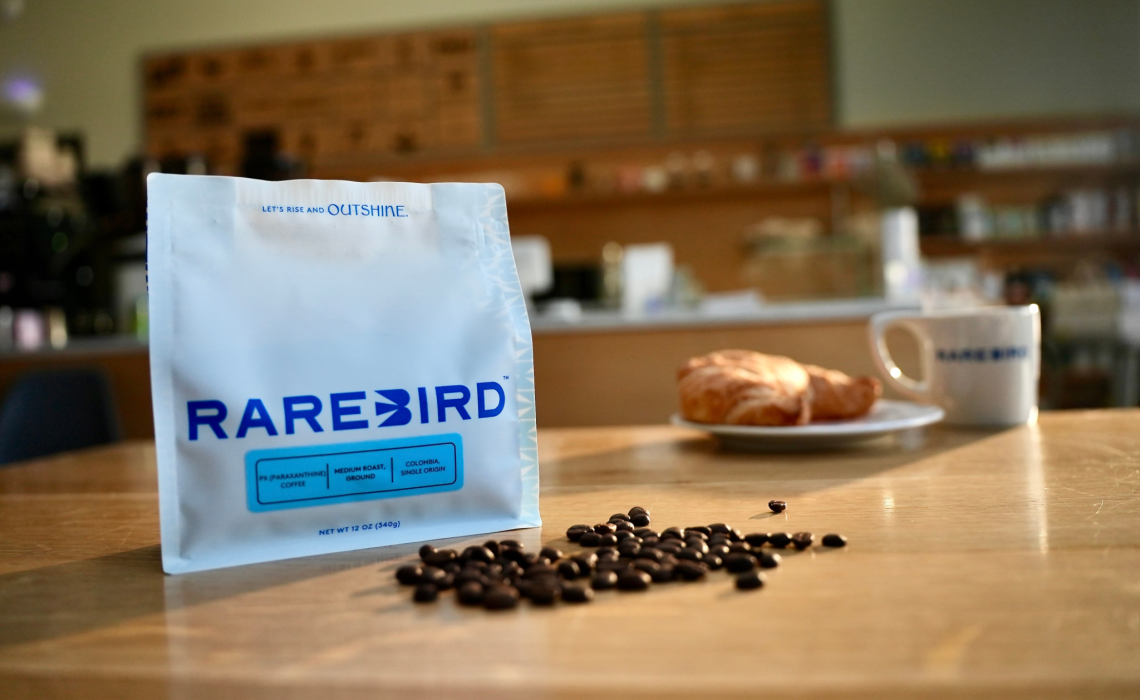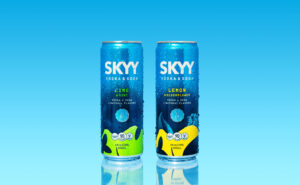The styles and varieties of coffee available on the market have continually expanded over the decades. From the classic cup of drip-fed coffee that is in itself an icon of America to the expansive, and sometimes expensive, creations personified by the drive-thru chains, one thing has remained a constant – caffeine.
Yes, decaf exists and has its place, but for many people coffee isn’t coffee without that kick. Especially in the mornings. Yet for many people it’s also a surefire way to jittery, anxiety-inducing effects that outweigh the benefits. Enter Rarebird whose use of paraxanthine (a naturally occurring metabolite) is carving out a new market for coffee.
What is Paraxanthine?
Paraxanthine is a molecule resulting from metabolism found in humans and other animals. Rarebird co-founder and CEO Jeffrey Dietrich picks up the case. “I got my PhD from UC-Berkeley in bioengineering, and I’m a technologist at heart, so I’m used to reading a lot of academic studies,” says Dietrich.
“I came across a bunch of papers (some of which go back to the 1960s) describing paraxanthine, which is produced inside your body as it metabolizes caffeine. What I found was intriguing – paraxanthine seemed to possess many of the beneficial effects of caffeine, such as increased alertness and improved physical performance, but with potentially fewer side effects like anxiety and jitteriness.”
In 2022, Rarebird’s paraxanthine received a self-affirmed GRAS (Generally Recognized as Safe) status with a recommended maximum daily consumption of 300 mg per day. Caffeine meanwhile is rated as safe up to 400mg per day – the discrepancy highlighting the differences in length and breath of research on caffeine vs paraxanthine. Dietrich points out that the results from independent, third-party labs showed that “paraxanthine was performing better than caffeine across every safety parameter tested.”

For the coffee itself, the company starts off with single-origin Colombian whole beans. Sam Lilley, Head of Strategic Initiatives, Rarebird, fills us in. “We selected this coffee not just for its exceptional taste, but also for the sustainable and safe process in which it’s decaffeinated, as well as its positive impact on the communities where it’s sourced,” explains Lilley.
“Every purchase of this coffee supports a local initiative facilitated by a Colombia-based non-profit organization that helps to bring safe, clean drinking water to many rural Colombian farming communities. Our importing partner is Sustainable Harvest, an organization focused on creating transparent relationships that increase value throughout the supply chain, all while fostering greater sustainability.”
“We purchase green coffee beans that have been decaffeinated using the sugarcane decaffeination process,” explains Dietrich. “We chose this method because it’s a natural decaffeinating agent, and it creates a great-tasting coffee. It selectively removes the caffeine from the green coffee beans while preserving the other compounds that contribute to the coffee’s flavor and aroma. This process is quite gentle on the beans, and it allows us to maintain the integrity of the coffee’s taste profile.”
Dietrich calls the process of introducing paraxanthine into the decaffeinated coffee as ‘a bit of our secret sauce,’ noting that the company has IP rights around this aspect of production.
The result is probably best described as surprising in how unsurprising it is – it does indeed taste like coffee. It’s quite a coarse grind, best suited to a drip machine rather than espresso, and has a classic medium roast flavor profile. Thick chocolate, medium bitterness, some dark fruits. Imperceptible from a classic cup, which one would assume to be the purpose of Rarebird’s inaugural release.
D2C Vs. Foodservice
 For now the company is focused on the D2C market. A 12oz bag of Px Coffee is currently $26.50 at rarebird.coffee. The company recently solved a supply bottleneck and now has a subscription offer of $19.88 per 12oz bag.
For now the company is focused on the D2C market. A 12oz bag of Px Coffee is currently $26.50 at rarebird.coffee. The company recently solved a supply bottleneck and now has a subscription offer of $19.88 per 12oz bag.
Regarding retail, says co-founder and Chief Business Officer Ann Dunn Andracchio, “we’ll probably start looking at specialty grocery within the year. Think the Erewhons of the world – establishments with high average checks and a customer base that is hyper vigilant about what they put into their bodies.”
Foodservice is a natural step for a coffee brand and Rarebird is currently trialing Px Coffee with select cafe and restaurant partners. Sam and Ann Dunn are noticing a trend that’s the reverse of typical coffee sales. Where historically coffee sales slump as the afternoon wears on, because Px Coffee is free of caffeine operators are noticing an uptick in sales post-lunch.
“Based on the consumer behavior we’ve seen so far, we believe that Px Coffee could be a solution for the midday sales drought that a lot of restaurant and cafe operators are facing,” says Andracchio.
Ultimately the team at Rarebird wants paraxanthine-based coffee to be a viable third option in any setting – at home, the office, or out-of-home: coffee with caffeine, decaffeinated, and paraxanthine coffee. They see it as part of a wider shift for society.
“By creating a coffee that leverages the unique benefits of paraxanthine, we can offer people a better way to start their day and support their mental and physical well-being. And that’s really what drives me and the whole team at Rarebird,” says Dietrich.




